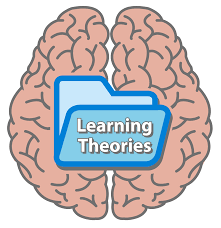Theories of Learning in Table tennis
Article 1: Engine Learning Hypotheses in Table Tennis
Engine learning hypotheses, for example, Fitts and Posner's model, are significant in table tennis. The three phases of engine learning - mental, cooperative, and independent - apply to table tennis abilities like forehand and strike strokes.
- Mental stage: Learning essential strokes and methods
- Cooperative stage: Refining strokes through training and input
- Independent stage: Performing strokes naturally
Mentors can apply engine acquiring speculations by breaking abilities into more modest parts, giving criticism, and progressively expanding intricacy.
Article 2: Data Handling Hypothesis in Table Tennis
Data handling hypothesis proposes that players interaction data through tangible information sources, working memory, and independent direction. In table tennis, players must:
- Process visual data from the rival's developments and ball direction
- Store and recover data from working memory
- Go with speedy choices in light of handled data
Mentors can apply data handling hypothesis by:
- Utilizing visual guides to improve player mindfulness
- Empowering players to zero in on key prompts
- Creating critical thinking abilities through game-like situations
Article 3: Self-Viability Hypothesis in Table Tennis
Self-viability hypothesis suggests that players' certainty and convictions impact execution. In table tennis, self-adequacy influences:
- Inspiration and perseverance
- Risk-taking and trial and error
- Strength in affliction
Mentors can apply self-viability hypothesis by:
- Giving positive input and support
- Defining reachable objectives and difficulties
- Empowering self-reflection and self-appraisal
Article 4: Social Learning Hypothesis in Table Tennis
Social learning hypothesis recommends that players learn through perception, impersonation, and support. In table tennis, players can gain from:
- Noticing mentors, companions, and rivals
- Emulating procedures and methodologies
- Getting input and support
Mentors can apply social learning hypothesis by:
- Showing procedures and techniques
- Giving open doors to perception and impersonation
- Empowering peer input and backing
Article 5: Use of Hypotheses in Table Tennis
Successful table tennis training requires coordinating different learning speculations. Mentors can apply these hypotheses by:
- Utilizing a player-focused approach
- Consolidating innovation and visual guides
- Giving criticism and remedy
- Cultivating a strong and comprehensive climate
By getting it and applying learning speculations, table tennis trainers can upgrade player advancement, further develop execution, and improve the general opportunity for growth.



Comments
Post a Comment